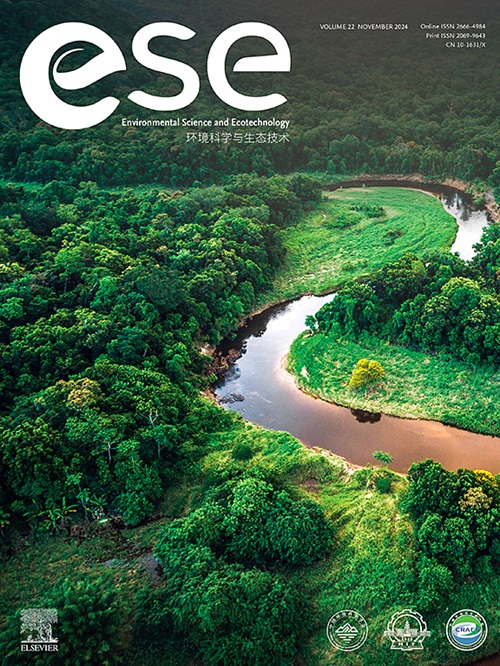Urbanization leads to asynchronous homogenization of soil microbial communities across biomes
IF 14.3
1区 环境科学与生态学
Q1 ENVIRONMENTAL SCIENCES
引用次数: 0
Abstract
Soil bacterial and fungal communities play fundamental roles in biogeochemical cycles and ecosystem stability. Urbanization alters soil properties and microbial habitats, driving shifts in community composition, yet the divergent responses of bacteria and fungi and their ecological consequences remain inadequately understood. To elucidate these differential responses, we investigated soil bacterial and fungal communities along an urbanization gradient, ranging from undisturbed reference forests to urban parks, across three distinct climatic regions. To capture different disturbance intensities, urban parks were classified by tree age into old parks (>60-year-old trees) and young parks (10–20-year-old trees). Climate had a strong influence on soil microbiota, yet urbanization still significantly altered both bacterial and fungal communities in all regions. Urban disturbances homogenized soil microbial communities: average similarity among bacterial communities increased from ∼79 % in forests to ∼85 % in young urban parks, indicating substantial homogenization, whereas fungal communities showed little homogenization. Urbanization also homogenized microbial functional traits, with a greater reduction in trait dissimilarity for bacteria than for fungi. Bacterial communities exhibited high adjustability to urban conditions, dominated by generalist taxa (∼90 %), whereas fungal communities consisted mostly of specialists (∼83 %). Despite these asynchronous responses—bacteria adjusting and homogenizing more than fungi—overlapping functional traits between bacteria and fungi help maintain functional resilience in urban ecosystems.

城市化导致不同生物群系土壤微生物群落的非同步同质化
土壤细菌和真菌群落在生物地球化学循环和生态系统稳定中起着重要作用。城市化改变了土壤性质和微生物栖息地,推动了群落组成的变化,但细菌和真菌的不同反应及其生态后果仍未得到充分了解。为了阐明这些不同的反应,我们研究了沿着城市化梯度的土壤细菌和真菌群落,范围从未受干扰的参考森林到城市公园,跨越三个不同的气候区域。为了捕捉不同的干扰强度,将城市公园按树龄划分为老公园(60年树龄)和幼公园(10 - 20年树龄)。气候对土壤微生物群有强烈的影响,但城市化仍显著改变了所有地区的细菌和真菌群落。城市扰动使土壤微生物群落均质化:细菌群落的平均相似性从森林的~ 79%增加到年轻的城市公园的~ 85%,表明存在实质性的均质化,而真菌群落几乎没有均质化。城市化也使微生物功能特征同质化,细菌的特征差异比真菌的特征差异减少得更多。细菌群落对城市条件表现出高度的适应性,以通才类群为主(约90%),而真菌群落主要由专才类群组成(约83%)。尽管存在这些不同步的反应——细菌调节和同质化比真菌更多——细菌和真菌之间重叠的功能特征有助于维持城市生态系统的功能弹性。
本文章由计算机程序翻译,如有差异,请以英文原文为准。
求助全文
约1分钟内获得全文
求助全文
来源期刊

Environmental Science and Ecotechnology
Multiple-
CiteScore
20.40
自引率
6.30%
发文量
11
审稿时长
18 days
期刊介绍:
Environmental Science & Ecotechnology (ESE) is an international, open-access journal publishing original research in environmental science, engineering, ecotechnology, and related fields. Authors publishing in ESE can immediately, permanently, and freely share their work. They have license options and retain copyright. Published by Elsevier, ESE is co-organized by the Chinese Society for Environmental Sciences, Harbin Institute of Technology, and the Chinese Research Academy of Environmental Sciences, under the supervision of the China Association for Science and Technology.
 求助内容:
求助内容: 应助结果提醒方式:
应助结果提醒方式:


